David Stelzer is the founder and CEO of the now legendary Azure Standard.
He started farming as a teenager in the 1970s (!) and that passion for real food has never stopped since. He’s a man on a mission, and his story is fascinating.
Welcome to the Plain Values Podcast, please meet our friend, David Stelzer …
For more information about David and his amazing work, check out https://www.azurestandard.com/.
Transcripts
4:20 Family History
5:44 Mom and Dad were early pioneers
8:18 Great Grandad was murdered in a Siberian concentration camp
15:01 Were you working with combines/tractors as a kid?
15:41 Were Dad and Granddad monocropping and industrializing?
16:58 How did you and your dad’s focus on healthy and real food develop?
17:45 He was told he wasn’t going to make it
21:33 Accidentally killing the chickens with white sugar
23:17 Silent Spring—the first book about pesticides
25:22 Why would mercury be put on wheat?
30:00 Dad’s friendship with Bob from Bob’s Red Mill
34:03 Do you consider that the start of Azure?
35:45 What does Azure mean?
38:44 Forming the concept of semis going to drop points
41:36 Running semis coast to coast
45:03 Y2K garnered free advertising
48:51 Church program and Azure’s mission
53:07 How can we pray for you?
David Stelzer:
This is not looking good. They’re probably not going to save me. That was what they told my parents. My parents didn’t really want to buy that. This is an allergy. It’s the worst allergy I’ve ever seen in my life. You have to do a major diet change. I’m going to throw away all the white flour and white sugar. So they mixed it in a big pot and they fed it to the chickens, and about half the chickens died.
Marlin Miller:
That’s not a good sign. So they were like, oh, as a man and as a family. Please tell me that you were recording. No, I was not.
Cameraman:
Oh, dang it.
Marlin Miller:
Dude, that was
Cameraman:
Perfect. I know. All of a sudden I was like, shoot, I should be recording this. I suddenly looked over and I was like, oh, you’re recording audio. Shoot.
Marlin Miller:
Okay, well let’s do it again. Ask me the question that you ask me.
Cameraman:
Well, I love, often we talk about what happened in their history, their family history, and kind of what led up to what. But it gets way more interesting when they start to get their interpretation on why they think stuff happened and you chiseled down to what they’re passionate about and how they feel about what happened or whatever.
Marlin Miller:
Yeah. Well, it’s starting to seem, we’re up to maybe nine or 10 of these episodes now, and I think it’s really interesting to watch, probably my own affinity for getting to know someone, getting to know their history and parts of the stories that make them who they are and why and all that. And it was no different, I think today with David, and it was really cool because I’ve seen David Stelzer from Azure Standard at many different homesteading shows. I’ve seen him for the last couple of years on and off. I’ve talked with Pete and Spencer and a handful of his team just a handful of times, but I’ve never had a chance to sit down and talk with David himself. And we carved out about an hour or so from our time here today as the 19th of June. And our teams are both at the Food Independence Summit in Walnut Creek, Ohio. And I shook his hand yesterday and I said, David, let’s sit down. Let’s see if we can find some time to carve out a bit and just get to know each other. So that just happened an hour ago. And man, it was a great conversation. So thank you very much for being here again and for joining us. I know that you will enjoy it. Thanks guys.
This episode of The Plain Values Podcast is being sponsored by my friends at Azure Standard. My friend Spencer just told me about a new program that they have launched, it’s called Around the Table. And around the table is this beautiful synergy between Azure and their food and their trucking and the local church. Here’s how it works. You set up a drop, you choose a coordinator, you order your food and you pick it up. And the church gets a small percentage back to put into any ministry that they want. It is a fantastic opportunity to encourage and help the churches get to know the people in their own backyards. I love it. It’s wonderful. You can call Spencer at nine seven one two hundred eight three five three nine seven one two zero zero eight three five three. Or you can shoot him an email at the ta***@***********rd.com and tell ’em Marlon sent you. Well, David Stelzer, thank you very much for having us here. That’s not what I meant. Thank you for being here with us. Glad to be here. Thanks for having me. This is such a joy. So for a little bit of context, we are both at the Food summit over in Walnut Creek yesterday and today, and I’ve been talking with some folks on your team and boom, here we are.
David Stelzer:
Alright,
Marlin Miller:
So this is great. Well, we’ll jump right in. Tell us a little bit about your family. Are you from Oregon or,
David Stelzer:
Yeah. Yeah. No, I haven’t gone very far. My parents lived in the, basically, well, we’ve remodeled the house major, but they live in the house I live in now when I was born. So I’m like gone nowhere. I did live in Yakima for a few years as a young child, but otherwise I’ve been basically in the same place my whole life. Wow. Lots of siblings, two brothers, two sisters. So there were five of us growing up. I have one older sister, one younger, and both my brothers are younger. And we grew up mostly, I’ve partnered with my youngest brother from almost the very beginning. And then my oldest sisters, her son has been involved. So that’s kind of the three larger families that are involved in Azure is my oldest sister’s son and his family, my youngest brother and his family, and then my family.
Marlin Miller:
That is cool. Can you share a little bit about your mom and dad?
David Stelzer:
No, absolutely. Yes. Mom and dad were early pioneers. Mom was from Arizona. Dad was raised in Washington state. They dad got, he wanted to farm from very beginning, multi-generational farm here. Granddad Was a farmer, although for health reasons. He had retired before. Dad was actually old enough to take over the farm because he had heart trouble so bad, .
And so when dad was old enough to kind of take over the farm, so he had retired and moved to town, but he rented out the farm. He didn’t sell it. So he then dad started farming that farm and then granddad said, Hey, well that’s probably not a good spot. So they sold that farm and bought the one we’re on. Now, that was in about 54 or so.
Marlin Miller:
Did your granddad live through the depression in that state in that
David Stelzer:
He was in Washington state. Granddad was a first immigration immigrant. He immigrated from, well now it’s Ukraine, but at that time it was Russia.
But he was actually hit our family before that had been brought in about a hundred years before that. They were Swiss Germans that had been brought in by Catherine the Great to help the Russian people learn how to farm. They were brought in as farming experts, and they were promised land and stuff like that to teach the, I guess, southern Russians at that time. But both of my grandparents, granddad and grandma were both, she was actually born, her birth certificate said Poland. His said Russia. But if you look up the towns, they’re all in Ukraine now.
Marlin Miller:
Because back then it would’ve been part of the USSR.
David Stelzer:
No, this was before the USSR. Really? This was, and so actually, my grandmother’s father was actually the agriculture minister to the Czar of Russia before Nicholas, the last czar of Russia. Really? So it’s kind of crazy stuff, but
Marlin Miller:
Well, Nicholas was the one that, the Bolsheviks overthrew.
David Stelzer:
Yes, exactly. So granddad ended up being murdered as well. They took him to a Siberian concentration. This would’ve been my great-grandfather.
Marlin Miller:
Yeah, like the gulags.
David Stelzer:
He went to the gulags because he was Nicholas’s secretary of, I don’t know if he was actually the secretary. It’s a little foggy. I couldn’t find that on Google. But he worked in the Department of Agriculture for Nicholas.
Marlin Miller:
So I mean, sincerely farming in your line goes back way
David Stelzer:
Probably to Adam as far as I know.
Marlin Miller:
Okay. Pretty good. So they went from Europe to Russia and then from Russia back here.
David Stelzer:
Yeah. So my great-granddad lived in Russia. He says he was kind of had his eye on things and he said, we have a problem. He wasn’t thinking so much. He was thinking the communist agitation that was going on in Russia at the time. And he said, I think this is going to be a disaster. This would’ve been my great-granddad. And so he took aside his two sons. They were 16 and 18 years old at the time. So my granddad was 16, and his older brother, Dave was 18. And he said, I think I want you to go to America and look up this guy. He used to live here, his name’s Gus, and he lives somewhere around Spokane, Washington. And so they get on a ship, go all the way across, come all the way across the country on a train, take some months to do. Did they enter through
Marlin Miller:
There at the New York Harbor, Ellis Island?
David Stelzer:
No, Elli. They actually entered through Canada for whatever reason. I’m not totally sure. They came across the train on Canada, in Canada, and they entered in a port up near Northport, Washington. And I don’t know exactly why, but that’s what he said. They came through Canada on their way.
Marlin Miller:
That’s fascinating. And that would’ve been the twenties, am I?
David Stelzer:
Yeah, so it was just a little bit before that. It was right before World War I, just a little bit before World War I.
Marlin Miller:
Wow.
David Stelzer:
And so this Gus, he was a wheat farmer, and so he gave the two boys a job picking up sacks of wheat out of the field. And then that was granddad’s first job.
Marlin Miller:
And then they stayed.
David Stelzer:
They stayed. Well, granddad actually, the very next year, this farmer, he bought a brand new combine and combines were kind of new back then. This was these combines that pulled behind like 32 head of horses, and they had the header out the side. And this
Marlin Miller:
32 horses,
David Stelzer:
32 draft horses would pull these. Oh my goodness. And the drive wheels would make the thrashing equipment go drive
Marlin Miller:
It.
David Stelzer:
And so they had to keep a certain speed. So they’d put 32 horses on those machines.
Marlin Miller:
Now I have seen 12 horse hitches. I’ve seen sixes and eights around here. Two fours are pretty common around here with the Amish. I cannot imagine a 32.
David Stelzer:
Well, you can Google it sometime. There’s some pictures on ones that were like that. There’s some drawings and pictures.
Marlin Miller:
That is amazing. That is amazing.
David Stelzer:
But anyway, granddad was just the sack picker upper right. So they bought a brand new combine, and they hired a combine. Man, that was special job to be a combine, man. They got paid like 10 times as much as anybody else. And so they were just started harvest. This was granddad’s second year here. Over the winter, granddad had worked at a blacksmith shop just to get a little extra money.
And so he knew a little blacksmithing. And so he, or fabrication really. And so they were like one day into harvest, and the combine broke down, almost a brand new combine. Combine, man. He says, I can’t fix it. I don’t know what to do. And so he gets on the train to go back to Chicago where they had the manufacturing plant to get parts and whatever. Farmers mad as a hornet because when the sun shines, you harvest grain. And he had a lot of grain. And so of course the sack picker up was caught up with the combine. They didn’t have anything to do. So granddad goes over to the combine and figures out what was wrong. And he asked the farmer if he could fix it. And so the farmer said, yeah, you can fix it. Of course, I want to get this combine going. So granddad went to the blacksmith shop, I guess it took him about a day, and he built the parts that were broken and fixed the combine. And so then when the combine man came back, the farmer cussed him out and told him that this 18-year-old kid or 17-year-old kid was now the combine man. So he took the job. So he took the job of combine. Man, I love it. So he made a lot more money then. So that was where he actually was able to start a nest egg and
To buy his own place eventually and stuff.
Marlin Miller:
So how big were the farms that your family grew up on and passed down?
David Stelzer:
Well, the farm that we are on now, originally when granddad first bought, it was about 1600 acres. No kidding. About half of that was wheat ground, and about half of it was pasture.
Marlin Miller:
So for me, I should clarify for me around here, a big farm is a hundred and hundred 50 acres, 180 acres, 1600 is 10 times that for me. That’s a big farm. Is that a big farm in your neck of the woods or not?
David Stelzer:
No, no. It’s a relatively small farm.
Marlin Miller:
Yeah. Wow. My goodness.
David Stelzer:
Considered to be small on the smaller
Marlin Miller:
Side. So you probably go up to five and 10,000 acres. Is
David Stelzer:
A lot of farmers farm upwards of that? Yes, absolutely.
Marlin Miller:
Wow. So you are born on the home farm. You’re raised what kind of work, this might be a goofy question. You’re a notch older than I am. I’m 48. But were you working with tractors and combines and all that kind of thing as a kid or,
David Stelzer:
Oh, yes. Yes, absolutely. I
Marlin Miller:
Mean, I wasn’t imagining you were farming 1600 acres with horses.
David Stelzer:
Of course. No. By that point, when dad started farming, we had transitioned to tractors, but we had a Alice Chalmers with a 2 71 in it. Detroit. I mean, it’s not exactly the modern equipment you’d see today,
Marlin Miller:
Old stuff.
David Stelzer:
It was older stuff. I mean, we couldn’t afford the latest and greatest equipment at the time.
Marlin Miller:
So was your dad and your granddad, were they more along the lines of the monocropping and kind of the industrial style farming?
David Stelzer:
Yeah. So before kind of a thing that transpired there. So granddad, he had been a cattleman when he owned his own place in Washington.
Marlin Miller:
He
David Stelzer:
Did some daring, but mostly it was beef cattle was his thing. And then when they bought the place where we’re at now, it was wheat and cattle. So they would pasture the, it’s kind of, it’s canyons. We call ’em canyons, little bit bigger hills than what we have here. And then it’d be a little plateau on top of the hill and little rolling hills. And then you’d go into a deeper canyon again. So the canyons were pastured and all the plateaus were wheat ground. We’d farm the plateaus. And so yeah, it was wheat and cattle. Wheat, barley and cattle. That was the only three crops that they raised.
Marlin Miller:
So what was the transition like? Okay, Azure is of course known for a huge focus on healthy and real food. How did that develop in you and in your dad?
David Stelzer:
Well, when I was born, I was a sick kid. I had all kinds of problems that they didn’t know what was wrong with me. They had taken me to every doctor that they could find, all the specialists. The symptoms were more asthmatic. My earliest memories in life are laying on the couch trying to figure out if I could breathe my next breath. Really, this is, I didn’t have exactly pristine childhood when it came to that.
Marlin Miller:
Was it 3, 4, 5 years old?
David Stelzer:
Yes. This was from the time, I guess when I was a baby, I was fine up. My mother weaned me.
Marlin Miller:
When
David Stelzer:
I stopped getting mother’s milk, they, of course, they had a family cow and everything. I got put on cow’s milk immediately, and it was a big part of their diet, well, for whatever reason, but the medical establishment, they didn’t know. They said, oh, it’s some kind of chronic asthma or something like that. We don’t know if there’s any cure for it. I mean, there’s these inhaling drugs, some kind of, I don’t know, steroids stuff. It might keep you alive for a while, be probably is not destined for a very long life, really. That was pretty much the prognosis of the medical
Marlin Miller:
Establishment. So they thought and told your folks that this is really not looking
David Stelzer:
Good. This is not looking good. They’re probably not going to save me. That was what they told my parents. My parents didn’t really want to buy that. So they started looking. Finally, after exhausting the medical establishment and getting no hope, they started looking at alternative. And so they ended up finding a naturopath up in Spokane.
And so I went, they took me to the naturopath. I barely, I remember it, but I was pretty young, probably four or five years old at the time. No, I was a little young, probably four years old, but I’d been sick already three years. I was weaned when I was nine months I got sick then now I’d been nothing but sick kid. And so this naturopath actually does a bunch of tests, some blood test stuff that he did. Don’t know his exact methodology actually. I tried to get and figure out who he was actually just a few months ago. For the first time I actually figured out who he was, really my met his daughter, believe it or not. So it was kind of
Marlin Miller:
Crazy. Is he still here? Well,
David Stelzer:
He’s long since deceased, but his daughter is still a naturepath, so I thought that was interesting. He didn’t have the same name and stuff, so I kind of got lost. But anyway, but she is still an atropath. So anyway, but some kind of, it was a blood test and he said, oh, this is not chronic asthma. This is an allergy. It’s the worst allergy I’ve ever seen in my life. You have to do a major diet change. Not only is an allergy, but he is super food sensitive,
Marlin Miller:
Really.
David Stelzer:
And so he gave them a whole outline for a diet change. But he said, I’m basically according to him, and it’s turned out to be true, I’m allergic to basically anything that comes from an animal pretty much, except I can eat eggs in like chicken eggs, but anything dairy, I am just still to this day, I cannot use dairy.
Marlin Miller:
Wow.
David Stelzer:
And I have to be pretty much, don’t eat any regular meat either. I have to be very judicious about that to this day.
But at that time, I was just loaded down with toxins. He said basically I was born with a broken microbiome that did not digest animal products well, and just dumped ’em straight into my bloodstream raw and was just killing me. And that was his prognosis. And so they changed their diet. And it wasn’t just that they changed their diet, got rid of all the white sugar and white flour out of the house and all that kind of stuff all at the same time. They just did it all at once. And they didn’t just do it for me, they did it for the whole family really. The dairy and stuff was just for me. But as far as the whole foods thing was the whole family they threw, actually, they decided, oh, I’m going to throw away all the white flour and white sugar. So they mixed it in a big pot, and they fed it to the chickens, had about half the chickens died. That’s not a good sign. So they were like, oh, I guess we shouldn’t do that. He’s not crazy. He’s not crazy. So they followed that nature past diet, changed our whole family’s diet, and we started to improve. And mom got feeling better. She had had some issues and everyone’s feeling better. And granddad switched to that diet, and he also started eating garlic. He heard that was good for the heart. And he got, well, so he had retired when he was in his fifties. Now he’s in his late sixties, and he’s, well again.
So he goes back to work farming. In fact, he was killed in a farming accident in his mid seventies, still working 16 hours a day.
Marlin Miller:
But he was going strong. He was going
David Stelzer:
Strong. Yeah.
Marlin Miller:
Wow. So now you are all getting better, and this is now just a part of your being.
David Stelzer:
This
Marlin Miller:
Is now real to
David Stelzer:
You. Yeah, this is real. This is the way we eat as a family. But dad was still farming commercially. He hadn’t actually connected that quite yet.
Marlin Miller:
Interesting.
David Stelzer:
And so then he ended up, he started studying more about food and all this, and ended up coming across the book called Silent Spring. I don’t know if you’ve ever heard it, Rachel Carson. It was the first book about pesticides mostly focused on DDT.
Marlin Miller:
I’ve heard of it. Yeah. I’ve not read it,
David Stelzer:
But I’ve heard it. It was a groundbreaking book in its time. It was written in the sixties. I mean, way before everyone thought pesticides were healthy and good for you until then.
Marlin Miller:
And
David Stelzer:
She was the first one to really bring out as a journalist
Marlin Miller:
That
David Stelzer:
Pesticides, particularly DDT, is what she focused on. But pesticides were causing human health problems and animal health problems. And hence silent spring, no more birds.
Marlin Miller:
Right. Is that the book that kicked off the whole DDT Eagle egg thing? It is,
David Stelzer:
Yeah. Yes. It kicked that off. And it did either ban or restrict the use of DDT in many parts of the country and the world.
And it was the first time any chemical was banned, ever. And first time they really started testing chemicals. So then dad goes in and he realizes one day he was not feeling well, and he had been planting wheat. And so he said, well, I’ve been up to my armpits in treated wheat. So he looked up, he finally went to the library. You didn’t have internet back then. So he goes to the library and he looks up exactly what is in the, because it’s on the label, what’s in it, but it’s all words you didn’t understand. And it turns out that he was treating the wheat with almost pure mercury. With pure mercury. Mercury, yeah. With a bunch of red
Marlin Miller:
D in
David Stelzer:
It. Okay.
Marlin Miller:
Highly, highly
David Stelzer:
Poisonous, very toxic substance. They dye the wheat red, so nobody eats it. But here he is. I mean, he is out in the field in his shirt, sleeves, smoothing it out in the grain drills, breathing the dust, doing all this stuff. And he goes, and so then he looks up, why would we put mercury on wheat for a seed treating?
Marlin Miller:
Yeah, that was my next question.
David Stelzer:
Yeah.
Marlin Miller:
What is the purpose?
David Stelzer:
Well, the purpose was as a fungicide for a disease called smut. Crazy thing is we don’t have smut in eastern Oregon.
Marlin Miller:
Okay. I’m sorry.
David Stelzer:
They have it back here in some wetter places, but it’s too dry. We don’t have it. Never saw it before. He quit treating. He never treated since we’ve grown wheat for 50 years without any treating on it never seems much. Totally fine. Yeah. Doesn’t
Marlin Miller:
Exist. So that moment, he starts connecting the dots in a huge way.
David Stelzer:
In a huge way. And he said, well, there are no chemicals on my farm. Again, no mercury, no anhydrous, ammonia, nothing. I am done. Wow. We are never going back.
Marlin Miller:
This episode of the Plain Values Podcast is sponsored by Kentucky Lumber. Derrick Geier and his family are an incredible group of people. Derrick told me a story a few months ago that absolutely rings true with what I want our family to be about and who we want to care about. Derek was telling me a story about his family showing sheep, and they do a thing in their hometown where the night before, I think the main competition, they bring kids that have special needs and give them a chance to walk and show the sheep along with the kids who are actually showing the sheep. Derek told me that there was a young man whose arms were waving rather wildly, and nobody of the kids that were showing sheep chose him to walk with them. And so he was last and he was left out. And Derek said, Marlon, he said, I was so amazed to watch our son, Joe go over and pick this little guy.
And he said his parents reached out. This little guy’s parents reached out the night before. He was telling me the story with tears in their eyes, and they were so grateful to Joe and to Derek that their son would do that and make much of their son. Guys. That is the kind of company that is the kind of family that is the kind of value-based company that I want to do business with. And if you need anything as far as wood flooring, anything at all, trim, please give them a call. You will not be disappointed. Derek and his team are fantastic. You can find th**@***********rs.com. Now, would that have been, at that time been almost qualified or
David Stelzer:
Pretty much qualified as insane in a farmer? Yeah, pretty much. But also organic. It was actually organic, absolutely. We switched. And that’s why I tell people, my dad switched to organic in 1973.
Marlin Miller:
That
David Stelzer:
Was the last year he used chemicals actually.
Marlin Miller:
Wow.
Marlin Miller:
So now what happened to the farm, your yields, and as a result of that decision, did he see an instant? Yields went down, yields went down,
David Stelzer:
Weeds went up. He didn’t know what he was doing. I mean, granddad had farmed, but he had never farmed without that. Granddad was killed about that timeframe, really just about that transition. So he wasn’t there to lean on anymore, and it was a rough transition, but every year it got a little better, a little better each year. And then we started learning a little bit about soil health, about microbes, about mineralization of soil and all that. Now, I mean, 50 years later, yeah, we get as good a crops as the neighbors. But in the seventies, yeah, not so much.
Marlin Miller:
Was your dad able to get more for his crop because it
David Stelzer:
Was organic? He did actually. So for about a 10 year timeframe, I don’t know if you’re familiar with the brand, Bob’s Red Mill?
Marlin Miller:
Oh yeah.
David Stelzer:
So Bob Moore was the founder of Bob’s Red Mill, and he and dad were friends. They even went to the same church for a short period of time.
Marlin Miller:
So
David Stelzer:
Bob and my dad knew each other. And so when Bob first was launching Bob’s Red Mill, he wanted to be the Miller. So it was kind of this deal. Dad was going to be the farmer, the grain farmer. Bob was going to be the Miller. He was going to grind it, and they were going to sell it to a chain out west called Fred Meyers, which was still owned by the founder Fred Meyer at the time. But then Fred ended up passing in the early eighties, but for a while they kept taking the product. It was just a part of the deal. So Bob’s was putting our grain and a few other, but putting, he was grinding it, putting it in packages, selling it mostly through Fred Meyers chain. And so dad was happily selling our grain to Bob’s at the time, or called Moore’s Mill at the time. But Bob’s is what they branded it now. And then Fred Meyer, after he died, when the new CEO that the family hired to run the company, it now got merged with Kroger’s. But at that time, they decided they didn’t want that expensive organic stuff. So Bob, he just said, well, it was a good run, and he pivoted. He said, you’ll keep my product, my label. And he just switched to conventional. He just bought conventional wheat from the elevator, put it, ground it, and put it in his bag and sold it still through Fred Meyers and then expanded it from there.
And so he pivoted to conventional instantly, but dad believed in it and he wouldn’t pivot. So, and Bob actually told us about that after planting was already done. So this was in the late eighties, and I guess I was young and stupid still at the time, and I figured, Hey, somebody was eating this. The organic stuff where the rubber really meets the road is the consumer. It’s about who eats it. It’s not who sells it. Anybody can sell it. Let’s find out who eats it. Well, there’s a lot to that than just that. But that was my simple farmer logic at that time. So I started going around to health food stores and co-ops and stuff like that. I went ahead and got some of it ground, custom ground, some of our grain. I had wheat and rye and bread, wheat and pastry wheat and four or five things is all. And then I got each one of them ground into flour at a mill up in Yakima area. And so I brought that back, and so then I went, want to buy some wheat, want to buy some flour? And I’m like, well, I’d get, well, we’ll take five bags a week. Well, I got how many 50,000 bushels of that. We’ll
Marlin Miller:
See. Yeah, you’re talking a lot of,
David Stelzer:
But I was one of those guys that said, well, hey, let’s give it a shot. And said yes instead of no. So I actually started delivering just in the pickup at the first, and I drive these routes around the northwest and deliver product to these stores.
Marlin Miller:
Now how old were you when that was going on?
David Stelzer:
Oh, late teenager, early twenties. This would’ve been, yeah, I probably was 19 when I did my first store deliveries, 20 ish.
Marlin Miller:
Do
David Stelzer:
You
Marlin Miller:
Consider that the start of Azure?
David Stelzer:
Yeah, it was really where we started doing that in 1980. So I got married fairly young. We got married when I was 20, and she was 19, I guess, so young. I always jumped into everything with both feet.
But so I guess it was the following winter, we’d been married about a year, and I had realized what had happened is especially out on the east side, like Eastern Washington, I always had people asking me, it started out friends and family, but then the words spread, oh, this guy’s going to Portland and he can pick up stuff for you. And so I would pick up nuts and different things in Portland and take it out there. I was just kind of doing it as a favor since I was driving the pickup all around anyway, delivering this grain. And I realized there were certain things that were pretty common. People kept asking me for, I said, well, maybe I can make a little business out of this and at least pay gas kind of a thing. And so my wife and I sat down at a typewriter, word processor typewriter at the time before the computer really happened, and we made our first catalog, I think it was three or four pages folded in half, so it’s stapled. And so we sat down and did that when we were newlyweds and created the first Azure catalog. And that’s when we actually came up with the name Azure. Before that, we were marketing under Stelzer and Son’s husbandry.
Marlin Miller:
Okay.
David Stelzer:
Can you
Marlin Miller:
Talk about the actual, the word, because Azure Blue, but there’s much more to the Azure thing than just blue.
David Stelzer:
Well, it really, it is. It’s blue. It’s a color. And so I’m kind of a history buff. I’ve always been, and I always loved history and heraldry and all that kind of stuff. And I had just been reading about the colors of Heraldry, and I actually read about the US flag, and the reason that they put the blue field with the white stars in it was the states are connected in a rule of just law. So it stands for justice and law, and I felt like Marketing of Food, just like what happened with Bob, a lot of people still thought it was organic, it was still in the label. He didn’t do anything illegal. He took the organic name off of it. He took the logo off, but it was still, everything else looked the same. I felt, Hey, there is, and a lot of people for years after that thought his stuff was organic. The Bob’s Red Mill thought, and he has brought back a few organic items now, but the vast majority is not, it’s not organic. And I’m not picking on Bob. Simple Truth. They do the same thing. They go in, oh, simple truth, simple truth Organics. They’ll put Simple Truth Organics, they get people to buying it, they take the organics off, and then it’s just simple truth. They didn’t technically do anything illegal, but people tend to, oh, it’s always been here. The organic blueberries have always been here, and they still pick it up. It’s not even organic and they can charge a higher price because there’s this perception
It goes. So one of the things, I really want to be transparent. I want to be completely on board with the just and Right use in marketing of food organic particularly, but whatever. So since Harold Restart for law Justice doing things, right, I wanted to call it the blue standard or Blue Well, blue Shield. That doesn’t, so then I, okay, we’ll just call it the Azure standard, which is basically the color of the noonday sky from the top of a mountain. So that was where the name came from.
Marlin Miller:
Yep. So that’s 50 years ago, right?
David Stelzer:
That’s no more like 35 years ago.
Marlin Miller:
Okay. I’m not sure why I had thought
David Stelzer:
We started farming organically about 50 years ago, but when we came up with a name and started the catalog and everything, that would’ve been in like 80, well, 87, 88, winter of 80, 87, 88. Okay.
Marlin Miller:
So how did the entire concept of the semi going to a drop and how did that whole thing come about?
David Stelzer:
Well, it started out, I started, originally when I was doing it first I would deliver to everyone’s home, but then I was trying to do this trip around eastern Oregon, eastern Washington. It was about four or 500 miles. I was trying to do that in two days and to go into everyone’s home to do this delivery was just eating my lunch. And so I started asking people, this was after we came up with the name Azure. Before that, they were meeting me at the co-ops or whatever. And so once we had the little catalog, well, we’ll deliver and assuming you’re not too far off route or whatever. So it ended up just eating my time for lunch, and I just did not have time to do this. So I started asking, okay, everybody in Ellensburg, can you all get together at McLeod’s house? I’ll just deliver to McLeod’s. Everybody can pick it up there. And most of ’em said, oh yeah, that’s fine. That’ll work. Just deliver to McLeod’s. And so I would go to just one house in that town instead of all the different houses of everyone who the word spread to. And
That’s kind of where the drop point started. I didn’t really identify it that way at the time. I was just delivering everybody’s orders in that area in one spot,
Marlin Miller:
Trying to make it efficient and quick,
David Stelzer:
Just trying to get able to do my deliveries and still farm. Right? You’re taking two days a week to deliver that. Only leaves. Only leaves kind of a half a week for farming, and it’s still, sometimes things need to be done. So
Marlin Miller:
Were your kids, I mean, they grew up with you slowly building Azure. Are I should back up? Were all of your kids really into the farm? I mean, did they love the farm or were there some that were like, I’m out of here, I don’t want to mess with the farm, or how did that go down?
David Stelzer:
None of them actually. So the oldest ones, the oldest three, were very much into the farm, still are to this day. My oldest two sons still actually live on the farm. Then a little bit later, some of ’em, none of ’em hated the farm. They all loved the farm in their own way, but they didn’t necessarily all want to be farmers. Some of them had different dreams, but we have 11 children, so we had a variety there.
Marlin Miller:
Yeah, yeah. Did now, I mean 35 years today, you are running semis coast to coast, right?
David Stelzer:
Absolutely. Yeah. The drop point concept, it took off and then we were, I delivered first in the pickup, and then I went to a two ton van, and then I went to a box truck, and that’s when I was all still driving the truck. Then I ended up getting my sister and brother to do a little bit of the driving for me too down the road. And so they started getting involved. And then I had an uncle who was a semi driver. He lived up in Yakima, but that’s what he did. He owned his own semi and he was contracted to a company, but he was a owner operator, I guess. And so he was hauling apples down to California out of Yakima all the time. And that was kind of his big run. And so I asked him, Hey, can you pick, do you have a backhaul this? Can you pick me up some rice and stuff at Lundberg and various places? So I’d ask him every once in a while, once a month. I mean, he was doing the run twice a week, but once a month he would go and he’d pick up some stuff for me for a back haul so we could get it direct out of California. And the freight didn’t kill us so much.
He would give us an uncle deal on that uncle Norm. And then we started having some people in California ask, Hey, can we get the product? And so I asked Uncle Norm, Hey, can you take product down there? He says, well, maybe I could cut a pallet of apples, put a pallet of food on the back. I’ll stop by. Because where we were is pretty much on the road from Yakima going to California down to 97. And so he would stop and grab the pallet of food, and then it started growing pretty quickly from there. And so Uncle Norlan was basically the first one to drive semi for Azure.
Marlin Miller:
That’s cool. That’s cool. I have an affinity for truckers. My dad was a trucker for a long time.
David Stelzer:
Oh, okay.
Marlin Miller:
Yeah, I always appreciate that. So Norm was the one that kind of kicked it off and then it just went
David Stelzer:
Well. Yeah, so Norm, he started with California, but then when Azure started, there were probably about 30 natural food distributors throughout the country. Smaller ones today, a other than Azure, there’s really only two
Marlin Miller:
Really.
David Stelzer:
They’ve all either sold or consolidated or gone out of business, but one went out of business, this would’ve been in the early nineties, I guess, up in the Spokane area, eastern Washington. So we ended up, and then one went out of business in southern Oregon called Applegate, and we ended up picking up a lot of the customer base from those two distributors. And so especially in Spokane, there was a lot of heavy stuff went out. And so that was where we first actually did full truckloads. And then in the late nineties or coming up about 98, we had this food scare called Y 2K. I don’t know if you remember that. You’re probably too young, but
Marlin Miller:
No, I do. Yeah.
David Stelzer:
It was like all these people were worried that the world, the electrical grid was going to go down and all these things. And so a lot of people wanted to store grain and the word got out that Azure was a great place to buy grain. And we didn’t advertise, but there was like talk show hosts. There was a lot of talk radio and stuff like that back then.
Marlin Miller:
Yep. Rush Limbaugh and all those guys.
David Stelzer:
And we got mentions on a lot of those talk shows for free because people were just looking for places to buy bulk grain and our sales, particularly a bulk grain, we just went through the roof in those two years. So we started getting semis on a lot of our routes. So I had to hire other owner operators. Originally, I didn’t buy any semis. I didn’t have that kind of money at first. I just hired owner operators to do that for us. And so that relationship began to grow, and that’s how that concept got out. But it was all California and the northwest, just west coast, all the way up through. Then my brother ended up marrying a North Dakota girl, and her dad was an organic farmer in North Dakota. How fortuitous.
Marlin Miller:
Wow. Yeah.
David Stelzer:
And so he says, well, can I sell my products through Azure? This is my,
And oh, yeah. I mean, he grew a lot of flax seeds and stuff like that, but I don’t know how to get it out here. He says, well, I’ll just drive it out there. And so he brings a load of flax seed and stuff like that out there in his farm truck all the way out to Oregon. And he says, well, there’s a lot of friends and neighbors around there that would really like some products. So he loads up a few pallets of stuff that we pulled for all of his friends and neighbors and hauls it back to North Dakota. And so I thought, Hey, well if you do this on a regular basis, then we can make something out of that. And so at first I would have him meet Norm in Missoula, but then he started coming all the way out, and so we started doing routes back hauling all the way out to where he lived in North Dakota, so eastern. And that started growing really fast because we find out it’s major food deserts out in some of those areas in eastern Montana and the South Dakota, North Dakota and stuff. And so he started taking the product out there, and that route just grew like crazy.
Marlin Miller:
Wow. I’ve been thinking about this whole time that we’re talking about the trucking pop always talked about having to bobtail back home somewhere empty. That is a massive drain on a trucking company to not be making money both ways. Both ways. So for you to be able to do that, boy, that’s great,
David Stelzer:
Great. We did that. That was our early stuff with North Dakota. It was our early stuff with California, a lot of the little bit further away stuff at that time. Now we have a completely different model, but that’s the way it worked originally.
Marlin Miller:
And today you’ve got how many products overall in the catalog?
David Stelzer:
Almost 12,000.
Marlin Miller:
12,000 some products. Yeah. My goodness. Can we talk about the church program a little bit? Is that something that’s okay to discuss?
David Stelzer:
Yeah, no, absolutely. We’re trying to launch it right now.
Marlin Miller:
Okay. My new friend and your employee, Spencer, shared with me about the heart of the church program that you’re looking to launch. And I went home that night and I told my wife, I said, this is so brilliant on so many levels. I just love it. I mean, I’ll just say this, you’re looking to partner with churches to be a drop point, and then there’s a bunch of benefits to and fro, right?
David Stelzer:
Yes, absolutely. So Azure’s mission, our core mission has been to make healthy food available at an affordable price for families around the country because we’re concerned about the health of the nation, especially of families that are raising children, but everybody, I want everyone to be as healthy as possible. So that’s really our core mission. And so it seemed like a natural thing with churches. Two major pillars of health. There’s a couple more, but the two major pillars of health are, number one, are your spiritual and emotional health. That’s the job of the church. Number two, it’s the fuel that you’re feeding your body. That’s the food side. The church, if we want to create healthy families, we want families that have community support within their church community
For the spiritual and or emotional, psychological, the world. They came out with these shrinks and stuff. That’s not where that should be. That should be the pastors of churches that are helping people on that side of to get through the emotional and spiritual issues of life. That’s what the church is for. I shouldn’t say the only thing, but that’s a major function of the church. I feel like for healthy families, they need both. And a lot of churches and Azure really hasn’t concentrated on the spiritual emotional side of things. That’s not our space. And the church for the most part is never really concentrated on the food side. So if we can partner with churches so that we can work on the food side, education of healthy food, healthy family meals, organic food, what that means to raising healthy children and the church can do their function in the emotional spiritual side, then we have a formula that actually enhances the Azure mission of healthy families by an exponential amount.
So we really believe in that. So a couple of the things that we’re doing with the church program, I mean, yes, using churches as drop points, being able to, it’s a great way to get sometimes strangers into the church that would never set foot in there, that may be into healthy food, but might not have a good spiritual family at this point. So we have a ministry opportunity there. Also, if the word is being spread by the church throughout, we have a referral program that we’re paying what would normally be our marketing budget to the church. So if you would like to anyone who signs up based on that, they heard it at the church with their promo code, we will donate to that marketing budget, to whatever aspect of the church that they choose. So if they want it in their whatever ministry that would go to, we’re happy to make that donation based on the amount of sales that church has generated.
Marlin Miller:
Wow. It’s a beautiful idea. I just love it so much. How can we pray for you guys, for your family, for your team? How can we pray for you?
David Stelzer:
Well, we’re in a lot of expansion right now. We’ve also, there are certain entities in this world that are not real crazy about healthy food getting out of there out whatsoever. Do you mean We’ve gotten to the point we’re a little bit on the radar with that. We’ve had a few lawsuits and things like that that just are crazy, crazy stuff. But still, it’s cost money. So just for wisdom and to be able to serve our customers in the right way and for protection from those that would want to destroy the family really is what it gets down to.
Marlin Miller:
Yeah, we were talking before about the many different agendas that seem to be very beautifully aligned against the church and against the family.
David Stelzer:
Yes.
Marlin Miller:
And just,
David Stelzer:
Yeah, the church really Judeo-Christian values. The church tip in America, it’s been mostly the church that has held that together, and I think it’s absolutely essential that the church continue to hold that value. And even more so, or our society is looking at a dark place, we’re going to go into a dark place unless the church really steps up and if we can support the church for healthier families so they’re not having to pray so much for the person with cancer that they’re praying more for the salvation of the families of America. That’s what I would love to see.
Marlin Miller:
David, thank you. This has been so good. Thank you.
David Stelzer:
All right. Thank you. I
Marlin Miller:
Love it. And hey,
David Stelzer:
Blessings on the endeavors here.
Marlin Miller:
Well, thank you very much. This episode is brought to you by Homestead Living Magazine. Homestead Living is a monthly print magazine that interviews all the big names in the homesteading world and they focus and educate in a wonderful way. You can learn more and su*******@*************ng.com. If you got anything out of this podcast, you will probably love plain values in print. You can go to plain values.com to learn more and check it out. Please like, subscribe and leave us a review. Guys love. Thanks so much.
Brought to you by …
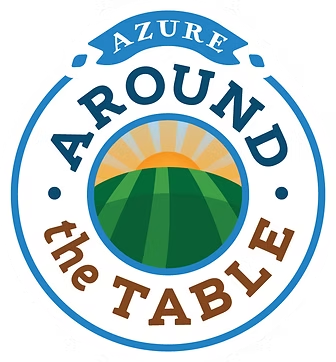
🤝THIS EPISODE’S PREMIER SPONSOR: Azure Standard
Talk about a mission-oriented company, our friends at Azure Standard set the standard of excellence when it comes to sourcing nutritious food for your family.
They have a new program called “Around the Table” that nourishes by walking shoulder-to-shoulder with churches and church communities. It’s wonderful!
Learn more: https://www.azurearoundthetable.com/
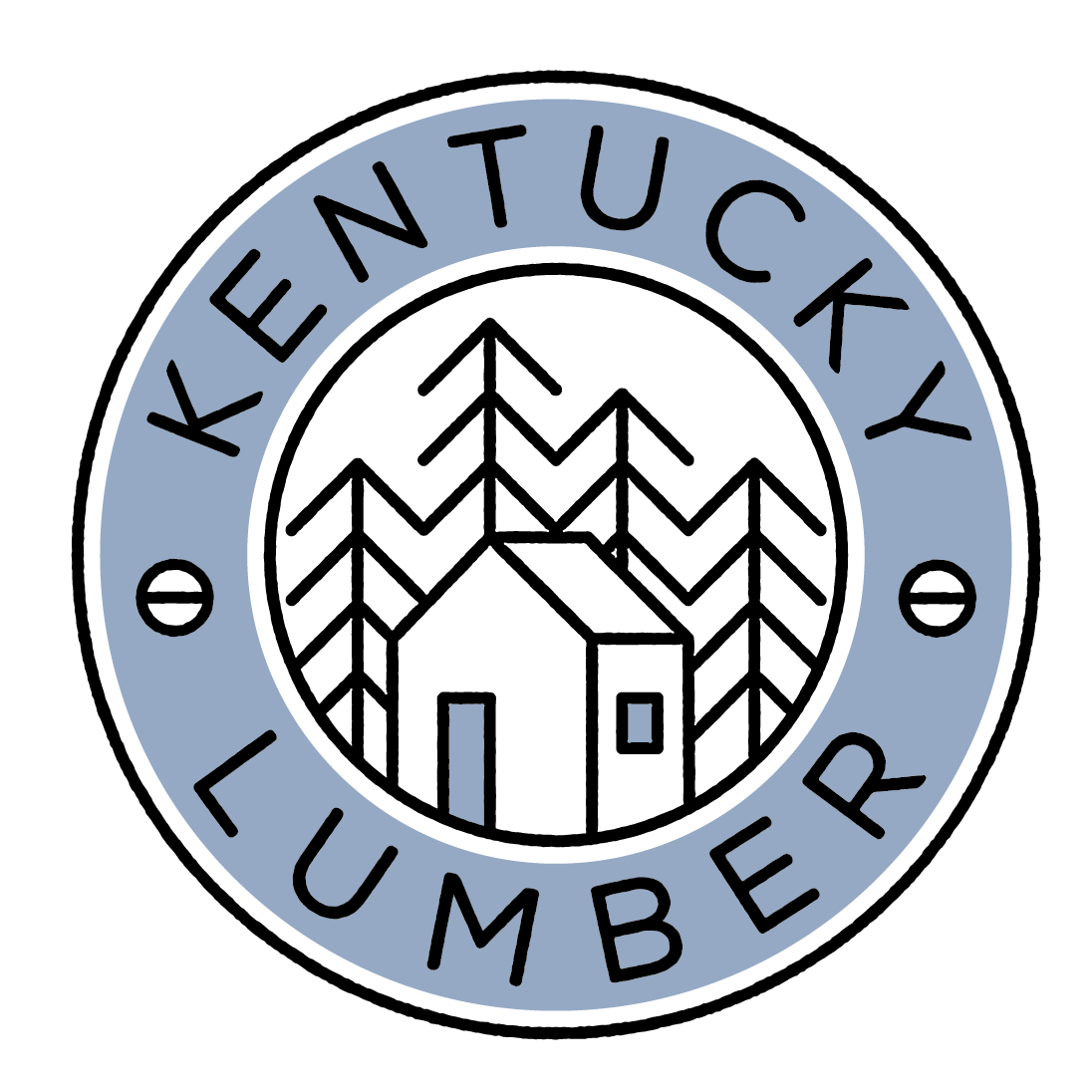
🤝THIS EPISODE’S FEATURED SPONSOR: Kentucky Lumber
Our friend Derek Guyer at Kentucky Lumber is the type of guy that you want to support. He is a highly-skilled tradesman who exemplifies excellence in everything he does. Kentucky Lumber is an independent lumber yard that truly does world class work!
We would humbly ask you to support them with your lumber needs: http://www.drywallhaters.com
“WELCOME TO THE HOME OF WOOD, PEOPLE, AND SERVICE WITH CHARACTER.”
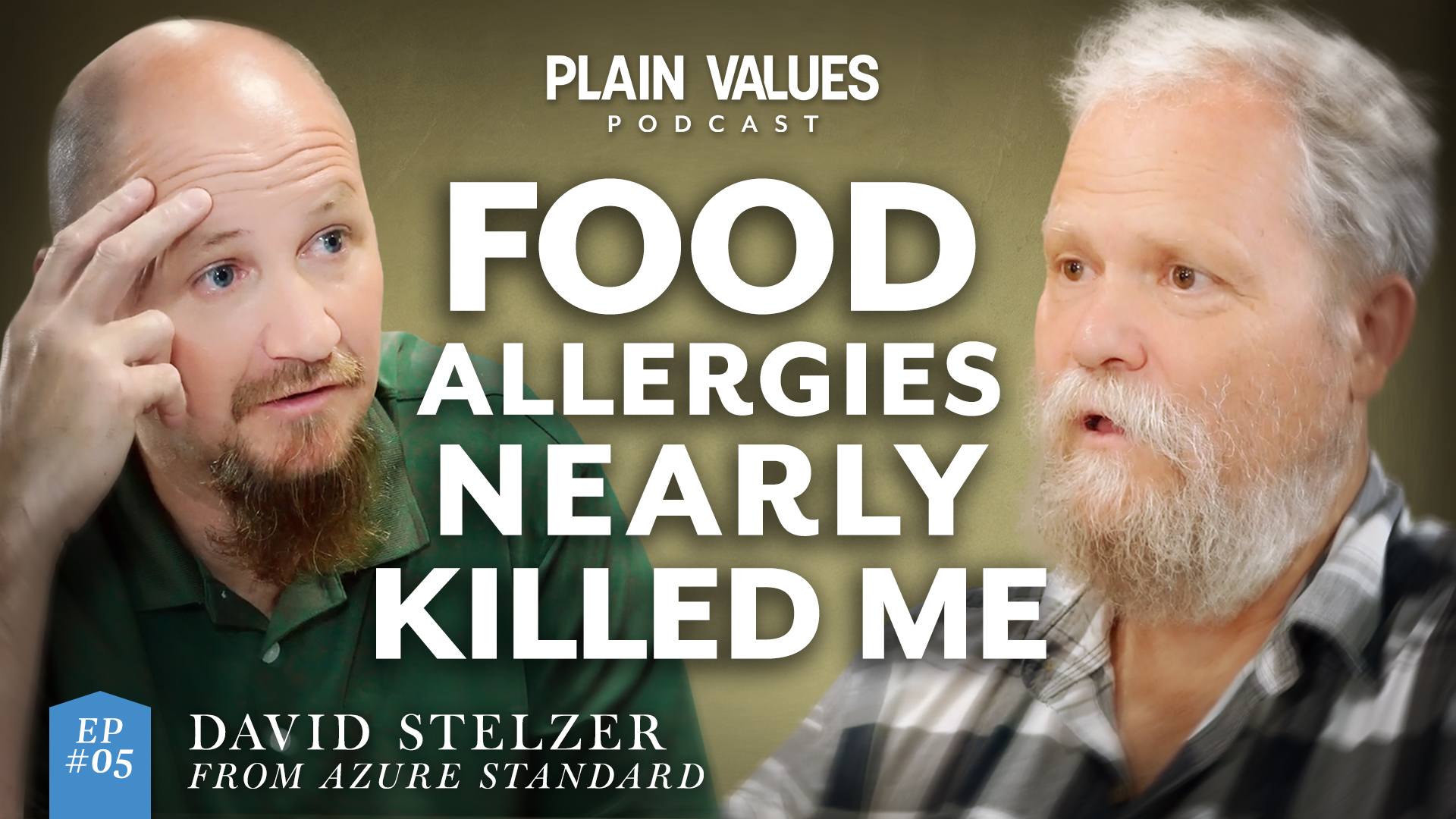
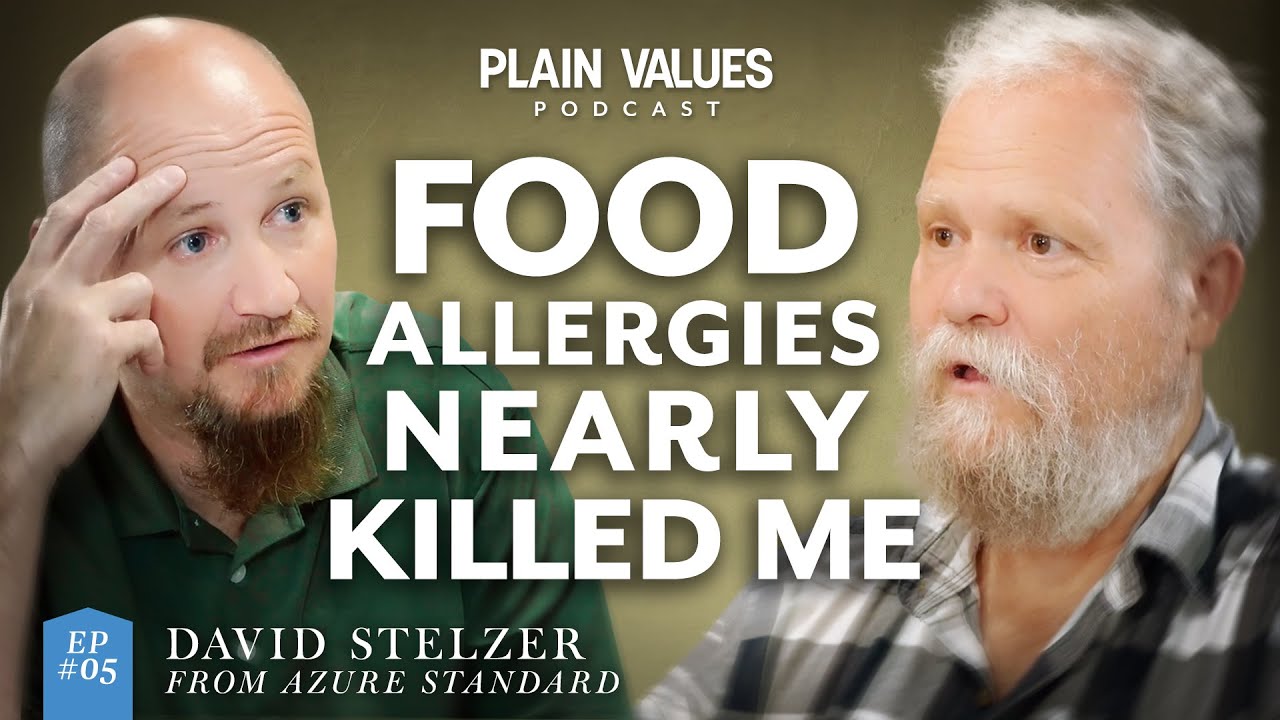
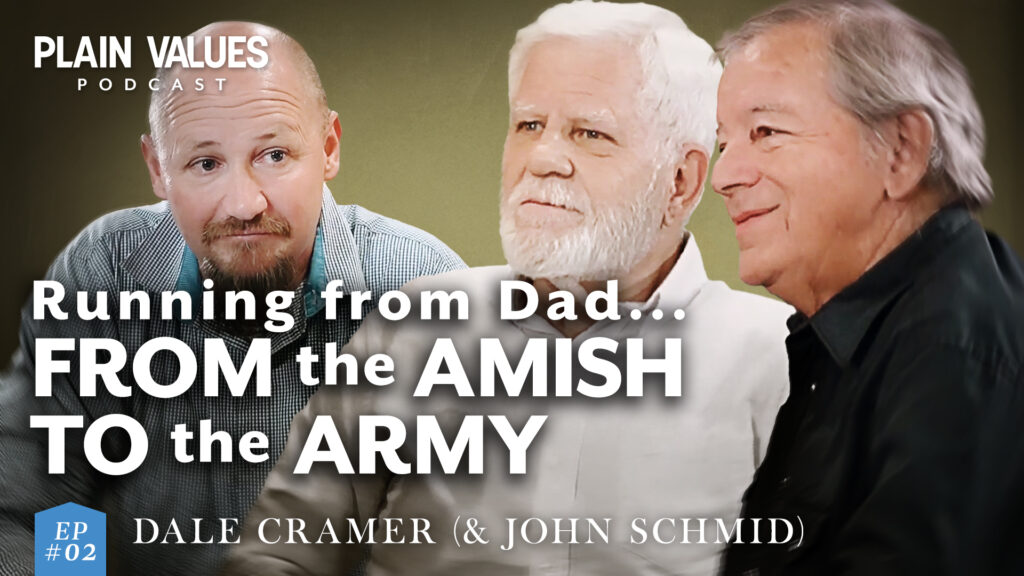
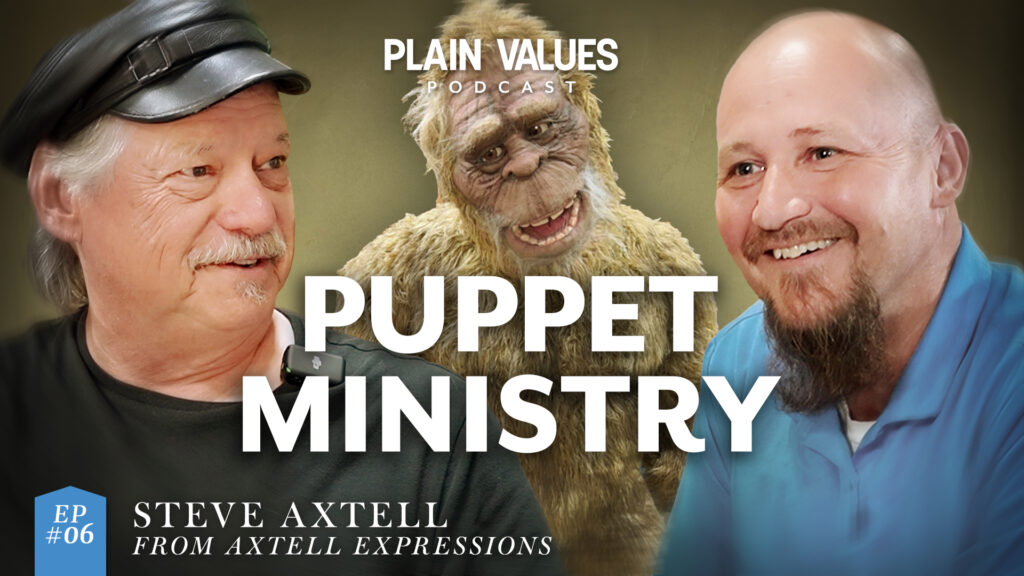
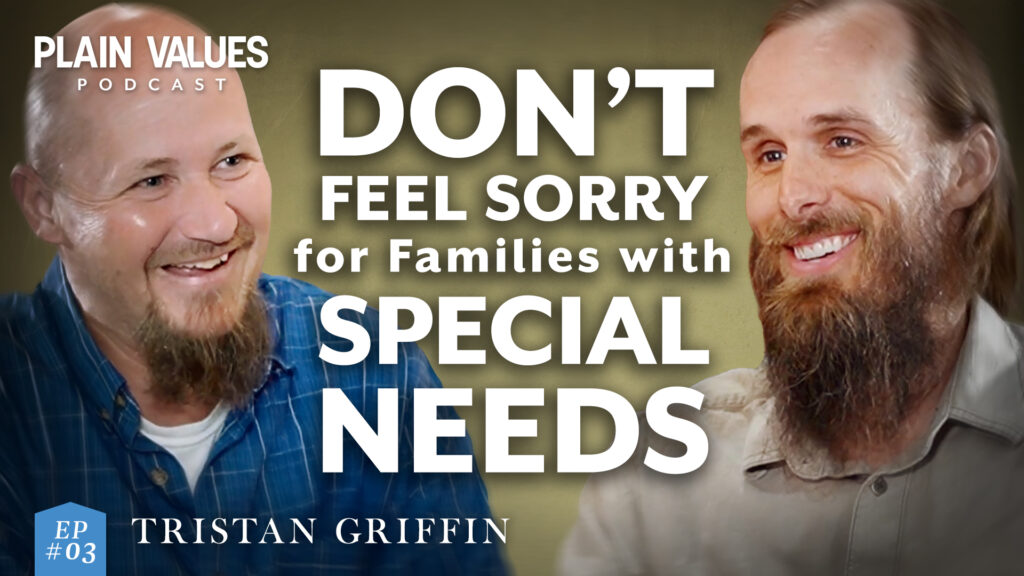
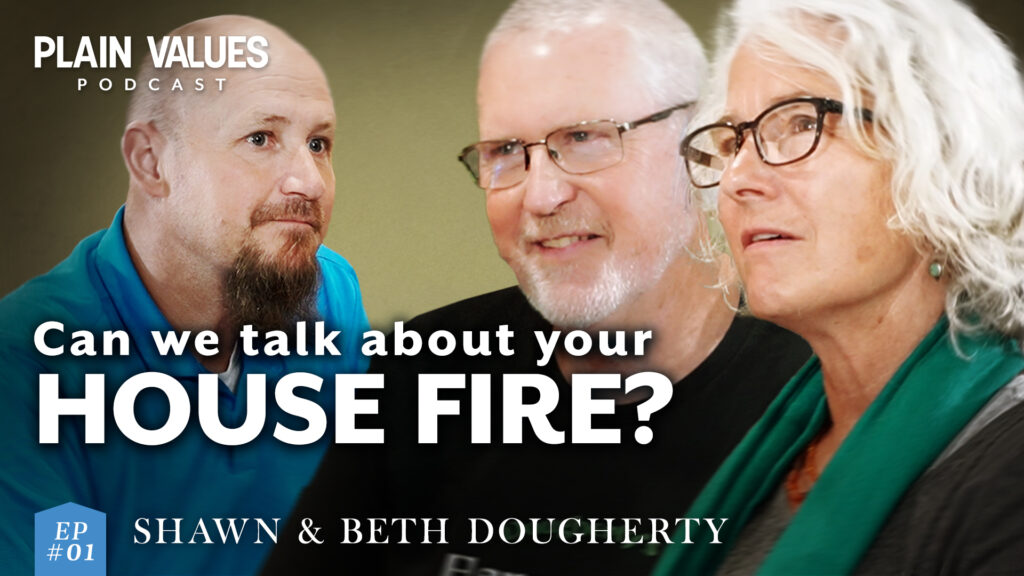




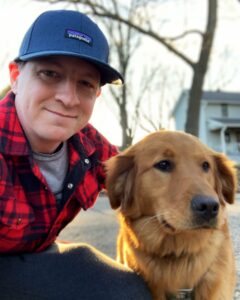

Leave a Reply